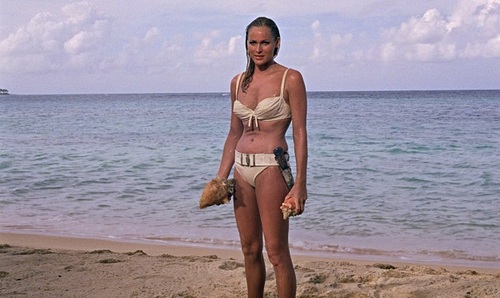Last month I wrote about why conservatives embrace Turner Classic Movies over any current network that plays more contemporary films. The lack of graphic violence, abusive language while having sex and infidelity portrayed beautifully through metaphor plays a large role in growing audience interest in classic Hollywood. It was a different era, literally the polar opposite of what you see today. Sure, there were good and bad things during the Golden Age, but most dedicated movie buffs feel that films were superior before 1960 – because they were.
TCM recently aired a seven part documentary on the foundation of Hollywood through 1970 that covered about eighty years of film history. This impossible task was a nice change of pace for the network and hopefully will spark a follow up series. However, taking on so much history in such a short amount of time forced the show to grossly oversimplify certain elements and leave other crucial happenings completely out of the picture. Sure, there were more conservatives in Hollywood in 1940 than today, but the political landscape was different (conservatives and liberals joined against Fascism and Socialism, for starters).
Big Hollywood’s John Nolte, who certainly knows a thing or two about classic Hollywood, recently caught up on Moguls and Movie Stars and was not happy. His criticism was that the series dwelled on the idea that the Studio System, complete with a self-censoring office, held back the full potential of the film industry. Nolte makes a great point in telling us that this doesn’t mean that Hollywood’s full potential is necessarily better. The same reason I argued that conservatives love TCM is why so many people prefer classic films over the new garbage spewing from Tinsel Town. Nolte notes that the series constantly reminds us of why the moguls and their politics were in the way, which is far from the truth:
“Most importantly, these were the men who created, oversaw, guided, and managed an industry that earned the affection of the free world for decades through the bringing together of all the arts — performance, design, dance, music, lighting, the written word — into works that still capture our imaginations. Compare that to today’s Hollywood, an industry that’s now a culturally divisive punch line in jokes about sequels, remakes, spoiled celebrities, and self-importance.”
The truth is that Hollywood would be nothing without men like Jack Warner, Walt Disney, Adolf Zukor, Irving Thalberg, David O. Selznick and many, many more like them. Sure, most of these guys were conservative (leftist historians constantly remind us of this but forget these moguls, many who were immigrants, embodied the American Dream), but the truth is what they did worked. Thomas Schatz, author of the excellent study on the Studio Era The Genius of the System, explores how the system wasn’t perfect, “but somehow it worked, and it worked well.” The nature of the Studio System was conflicted, but it was also drastically more collaborative than most of today’s productions.
While I enjoyed Moguls and Movie Stars, as a film historian it was frustrating to see the single network dedicated to classic filmmaking show such ignorance to some of the most important aspects of the system. They didn’t explain why it worked, only that the conservative moguls were tyrants who oppressed actors and filmmakers. On some occasions they did, but it doesn’t come close to the whole picture. Even director Peter Bogdanovich, who was interviewed for the series, explains that another seven hours or more is necessary to get a better picture of Hollywood. While Bogdanovich (who is also a film historian) may approve of the historical slant of the series, I assume he realizes the oversights that were made.
It takes much more than a matter of hours to understand the depth of the Hollywood Studio System. I have been studying film history for many years and am still continually digging into this magnificent and engaging era. Anyone who loves classic movies and is told that the Golden Age was only full of oppression, censorship and blacklisting needs to do further research on their own. It is impossible to picture Martin Scorsese without Raoul Walsh, John Hughes without Frank Capra or the Coen brothers without Billy Wilder. The Golden Age demanded excellence and has earned eternal respect from anyone who takes the time to see the whole picture.
Remember, the Studio System was a success not a travesty. More people will be appreciating classics like Casablanca, Gone with the Wind, and It’s a Wonderful Life than will be watching Avatar, Harry Potter, or even good films like The Social Network in the next year. Why is this? Because the Studio System continuously churned out great pictures by the month instead of by the decade. Films of the Golden Age were driven more by what the public wanted and less by political ideology, the greatness of this era will no doubt trump today’s Hollywood for many years to come.


COMMENTS
Please let us know if you're having issues with commenting.